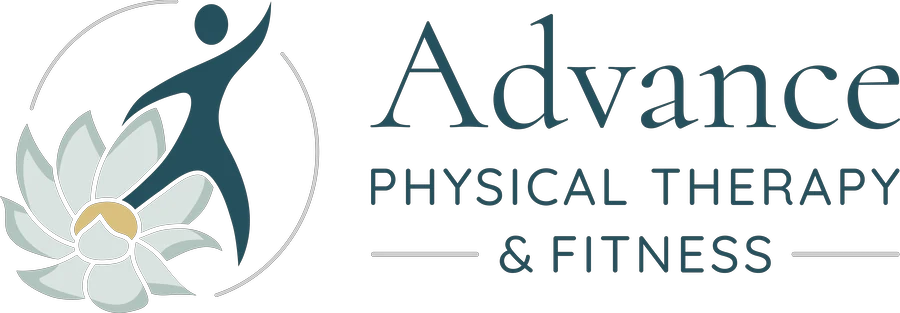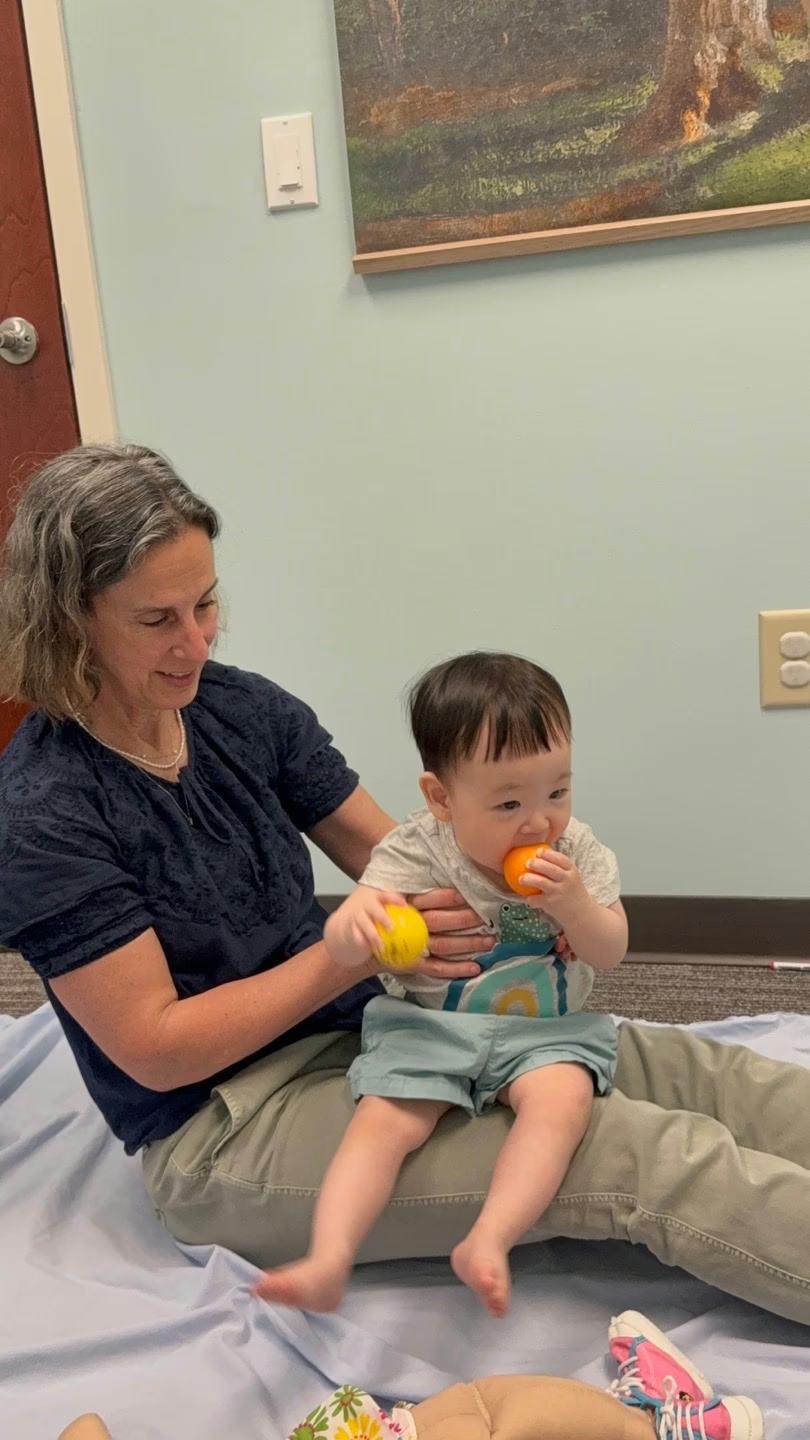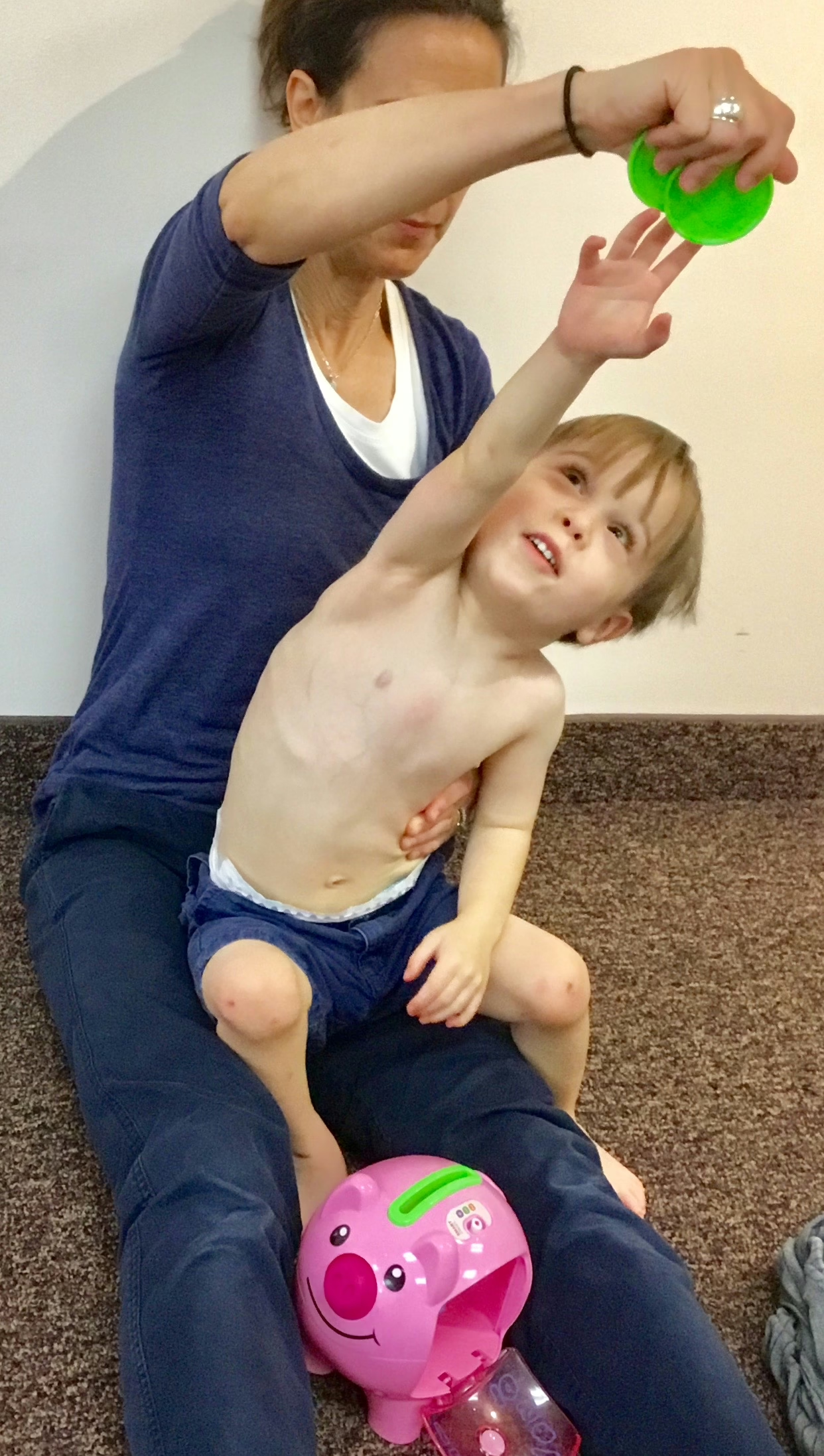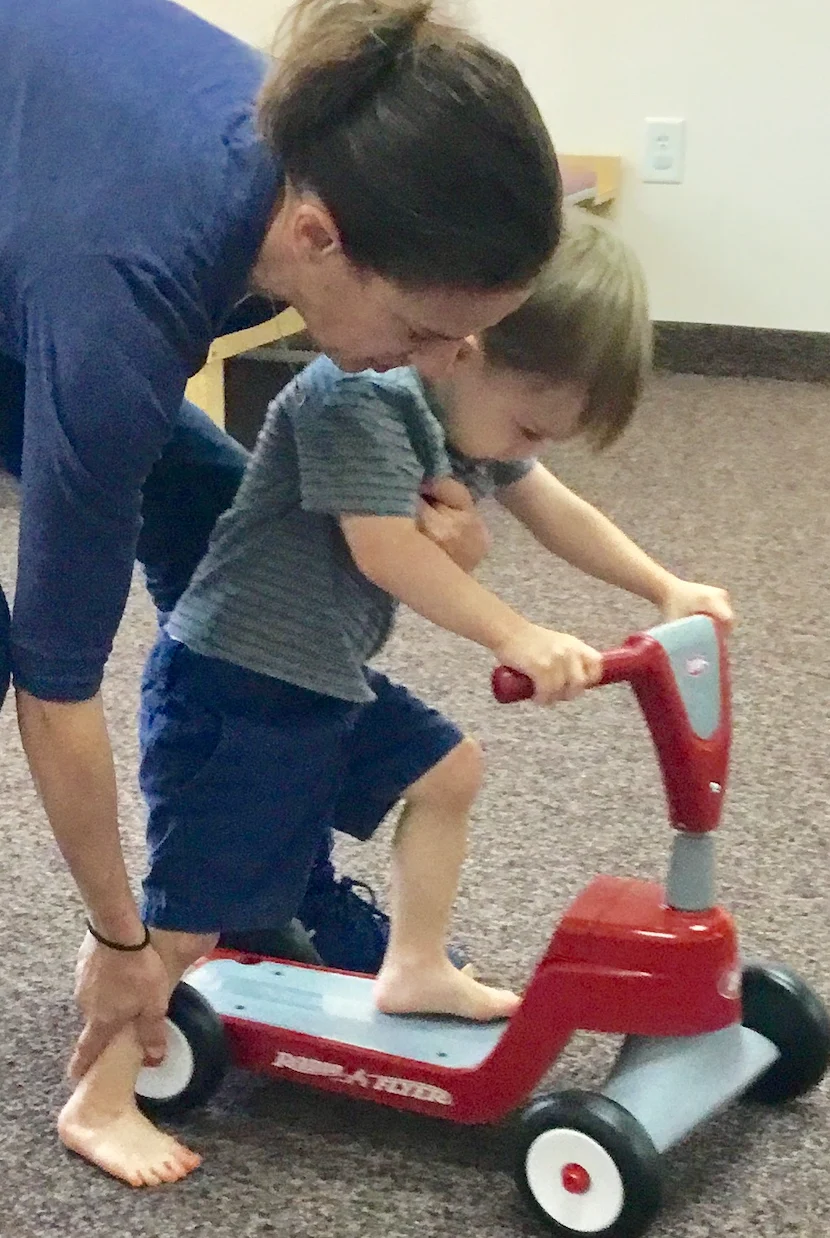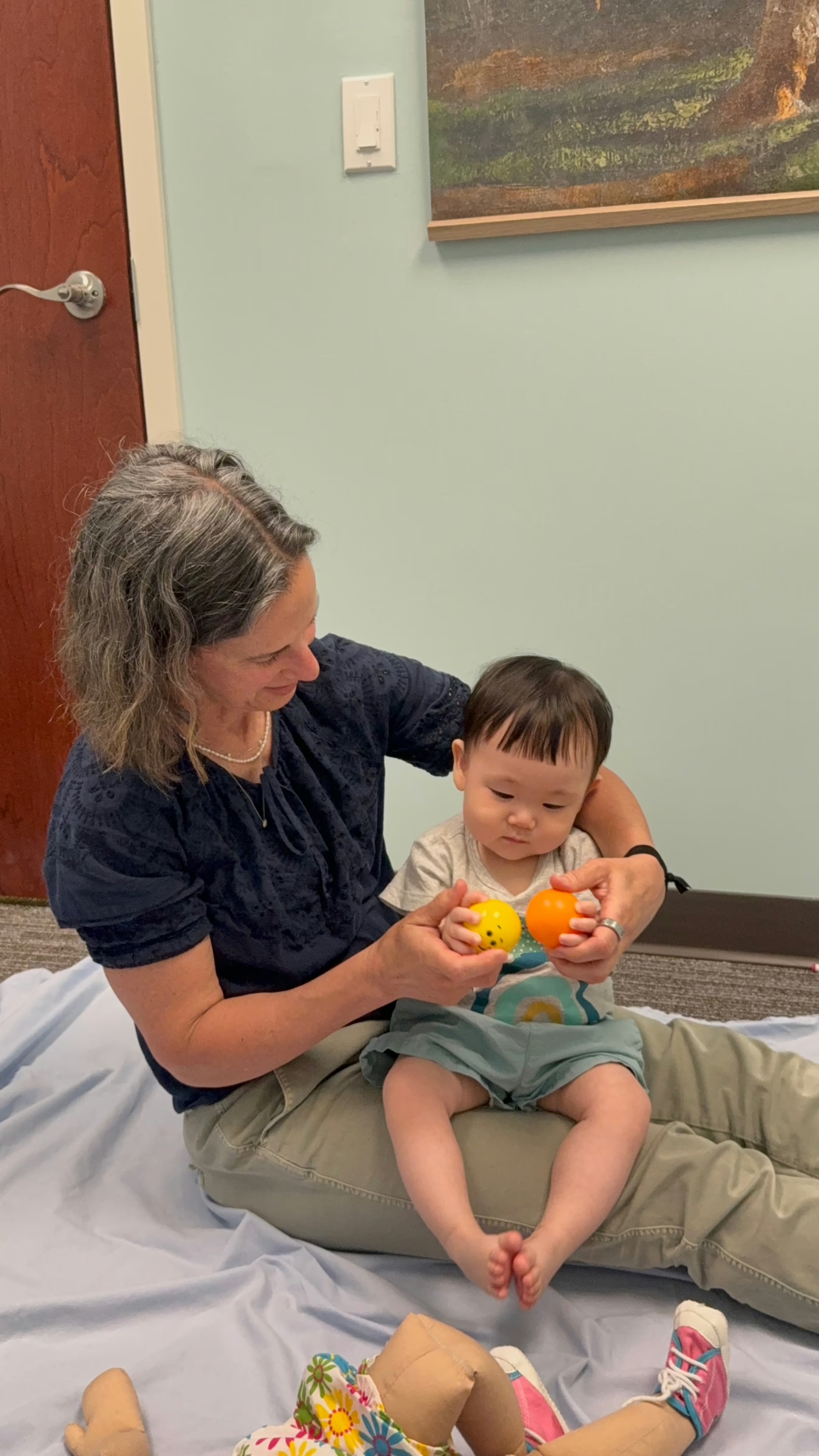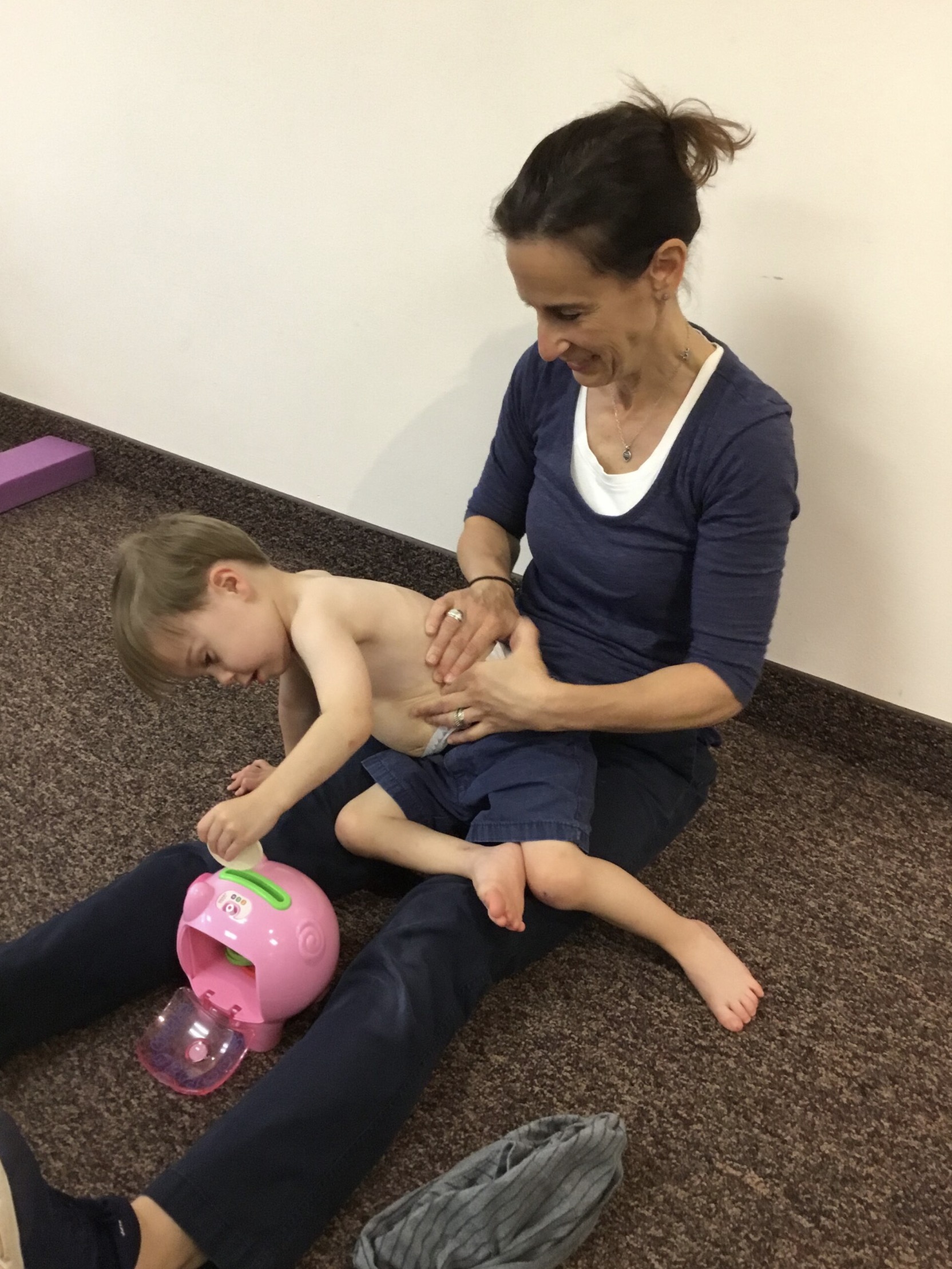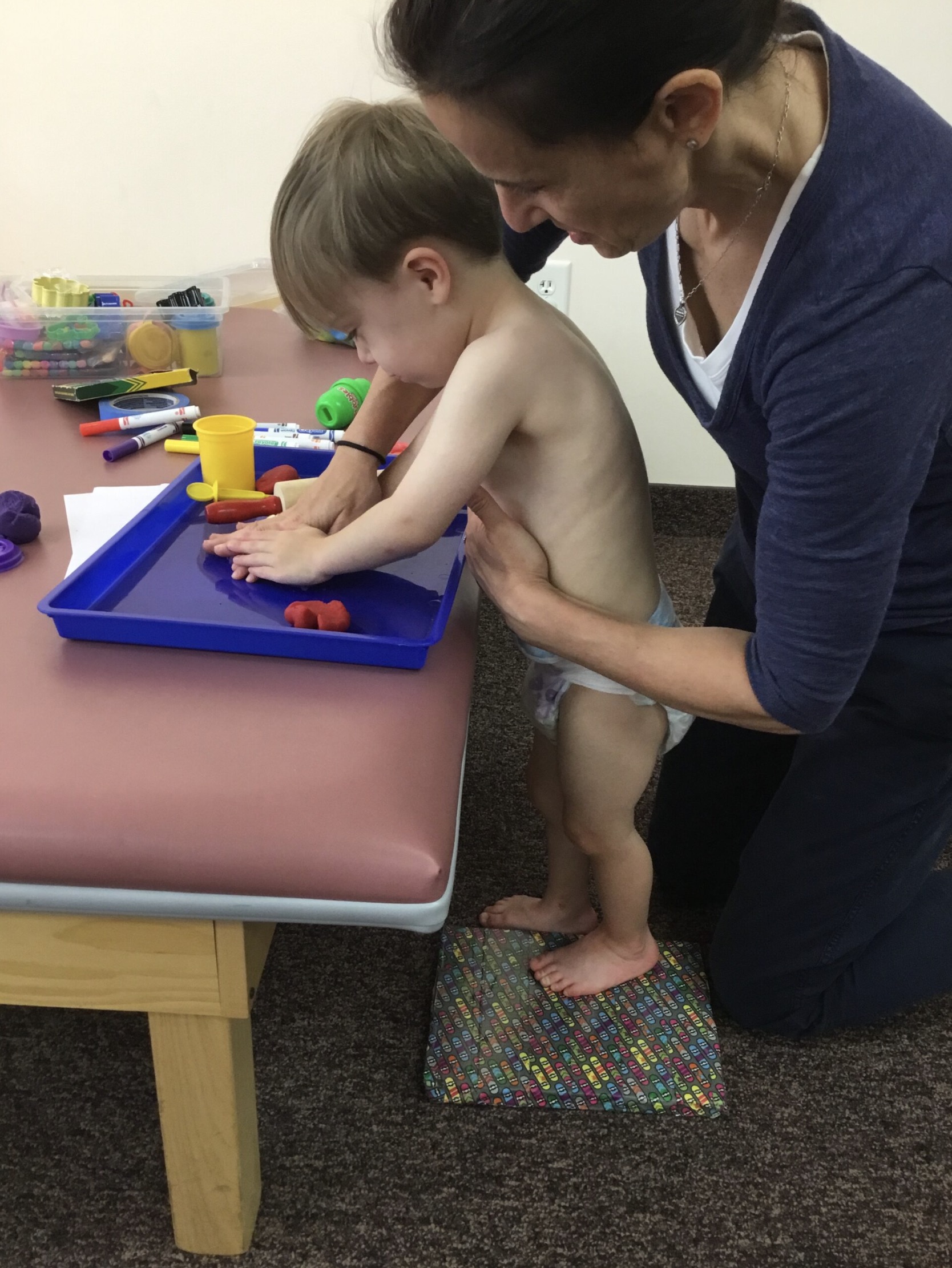Children love to move! It is one way they are able to play, to learn about things in their environment, about cause and effect, and how gravity works, not to mention, to get where they want to go! But not all children move the same way. If you have concerns about the way your child moves, we can help! Some things to look for include:
- frequent walking on toes
- moving much more slowly than their peers
- weakness and early fatigue
- having stiff muscles
- not crawling before they walk
- not able to stand or sit still
- difficulty with steps or curbs
- frequent falling
- uncoordinated movements vs. their peers
- reports of joint or muscle pain
- difficulty jumping, hopping or skipping
- fear of movement or low heights
Here are some general gross motor milestones that you should see in the first year of life:
- bringing hands and feet to the middle while they are on their backs at 3 months
- rolling from back to tummy and tummy to back around 4-5 months
- sitting by themselves at 6 months
- moving from sitting to hands and knees and back at 7 months
- crawling on hands and knees around 7-8 months (see our blog on crawling)
- pulling to standing at 9-10 months
- walking sideways along furniture or walls (cruising) at 10-11 months
- taking steps while holding your hands at 10-11 months
- walking by themselves at 10-14 months.
If you have any questions or concerns about the movement patterns of your infant, baby, or child, I would be happy to talk with you, offer some things to look for and to try, or to perform an evaluation in our Chapel Hill clinic.
– Lisa Mangino PT, DPT, C/NDT, PRC, SBS-C2
Lisa Mangino, PT, DPT, C/NDT, PRC, SBS-C2 is a pediatric physical therapy specialist with 15 years of experience in hospital, outpatient, and home health settings. She can be reached at Advance Physical Therapy at (919) 932-7266.
Here’s what parents who have worked with Lisa have to say:
My daughter had an amazing physical therapist when she was younger. Lisa Mangino really took the time to find out what worked and what didn’t for a head strong little girl who wouldn’t let anything slow her down. Emily credits Lisa with her desire to become a pediatric PT and give back to other children.” — MC, whose daughter has Juvenile Rheumatoid Arthritis.
My husband and I don’t know how to thank Lisa enough. She identified our son’s visual processing difficulties and knew how they related to his coordination disorder. He no longer falls and is enjoying soccer and basketball, and his self-concept is now super positive. She is our hero.” –JH, whose son has developmental coordination disorder and hypermobility syndrome.
Lisa’s dedication and creativity are unmatched. Thank you!” — SR, whose daughter has spastic quadriplegic cerebral palsy.
Lisa was extremely helpful. She worked very hard with our son and went a long way to help him. She was so resourceful and found us a beach wheelchair for our upcoming vacation. She did not have to do that!” –MH, whose son has orthopedic anomalies.
